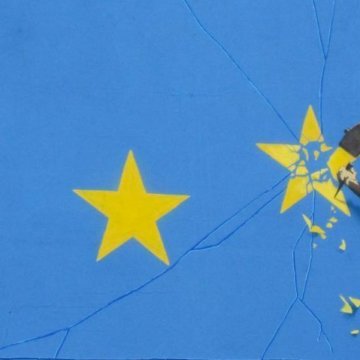- About
- Topics
- Picks
- Audio
- Story
- In-Depth
- Opinion
- News
- Donate
- Signup for our newsletterOur Editors' Best Picks.Send
Read, Debate: Engage.
| topic: | Democracy |
|---|---|
| located: | United Kingdom, Germany |
| editor: | Gurmeet Singh |
Brexit drags on. With the German economy shrinking, and European politicians starting to fret over the health of its powerhouse economy, less and less attention is being paid to the seemingly endless saga on the rainy island. What’s more, with American elections looming, (as they do, one year before they actually take place), Brexit is being overshadowed by topics of greater concern, even to sympathisers.
But there is a reason it drags on: bluster. That is, politicians saying they are committed to ending the crisis in the most amicable way possible, but of course, not being committed to it at all. And this is deeply distressing for millions of people across various countries because:
So why don’t politicians just stop it? Well, this week, leader of the Labour party Jeremy Corbyn wrote a letter to opposition MPs to form a coalition government (with him at the head of it), to temporarily work together to stop a no-deal Brexit, put a second referendum on the U.K.’s membership to the country (including with the option to remain in the EU), and then to hold a general election after – meaning he would only briefly serve as Prime Minister.
“Coup!”, they cried. “Power grab!”, “Finally, Corbyn the communist shows his true colours!” No, this kind of sentiment did not come from the incumbent administration (which has a Parliamentary majority of one, meaning it by de-facto does not have a voting majority), but rather, it came from the Liberal Democrats and other politicians who represent the so-called ‘centre’ of British politics. They refused to back Corbyn’s solution, because to them, “Jeremy Corbyn in charge is worse than Brexit”.
So there you go, a temporary solution to solve the crisis in a democratic way has actually been proposed, and was rejected by those who claim most to want a democratic solution to the problem. Why? Because actually, the Liberal Democrats and other centrist politicians do not care about democratic solutions to issues; they want power, without having to earn it through democracy.
No matter how much they claim to represent rationality and intelligence and good sense and the ‘right thing’, they do not have the courage of their convictions to actually realise them in the real world. They do not want to compromise because they simply want to stay in the EU, and disregard the voters who they know will once again challenge the U.K.’s membership in the union.
Corbyn has been vilified in the media for almost six years now. When it comes to Brexit, not a day goes by without journalists calling him a coward for not acting and not outright opposing Brexit. He has not opposed Brexit for two reasons. Firstly, because of obvious political tactics: it’s not wise to come out against a measure outright once 17 million people have voted for it. But more importantly, his political record shows he actually cares what people think, and he wishes to respect their votes.
I am no fan of Brexit, but I also agree with Corbyn that those 17 million votes cannot be ignored simply because they are inconvenient to certain groups of people. If we wish to live in a democracy, that means struggle, compromise and the least-bad way. The magical thinking of the centrists will fail: the world will not conform to what they think it should be, just because they think it should be that way.

